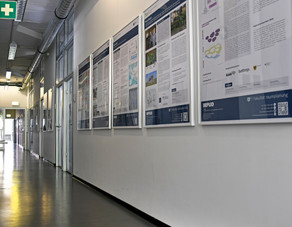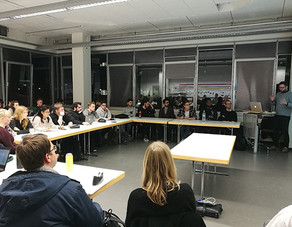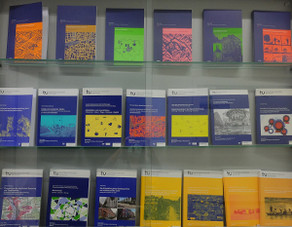Winter semester 2025/2026
A04 - When water blocks paths - Ensuring the accessibility of critical infrastructure during urban heavy rainfall events
In recent years, heavy rainfall events in urban areas have increasingly led to flooding, sometimes with far-reaching negative consequences for urban infrastructure. The temporary inaccessibility of roads and traffic routes, which play a central role in the accessibility of critical infrastructure (KRITIS) such as hospitals, care facilities, security authorities and energy suppliers, is particularly problematic. Incidents such as the heavy rainfall event in Münster in 2014 with over 290 liters per square meter in 24 hours or the flood disaster in the Ahr valley in 2021, in which numerous traffic routes became impassable, illustrate the urgency of this problem. This poses decisive challenges for spatial planning: Planning and ensuring a resilient transport infrastructure is essential to guarantee the functionality of KRITIS under extreme weather conditions and in the face of increasing adverse climate impacts. At the same time, it is necessary to design urban systems in such a way that the negative effects of heavy rainfall on traffic and supply routes are minimized.
The A-Project offers students the opportunity to deal with the spatial planning challenges posed by urban heavy rainfall events and the resulting flooding. The project offers the opportunity to engage with existing research, data and case studies to understand the dynamics of flooding in urban areas. In particular, the links between transportation infrastructure and the functionality of KRITIS in the municipal context will be explored, while also implementing collaboration and practice exchange with stakeholders.
Dates: Monday, 20.10.2025 to 02.02.2026, 14:00 to 18:00, weekly
Thursday, 23.10.2025 to 02.02.20265, 14:00 to 18:00, weekly
Location: GB III, R 306
Further information: Event in the LSF
Supervision: M.Sc. Bastian Powierski
F06 - Integrated Climate Resilience Planning in Bacolod, Philippines
The City of Bacolod is the most populous and highly urbanized city on the Island of Negros with a total of 624,787 inhabitants as of the 2024 census. The city experienced a steady population growth of 1-2% p.a. in the last 25 years. The economy has shifted from sugarcane production to information technology (IT) and business process outsourcing (BPO) activities as well as serving as the main hub for maritime and airborne transport. Bacolod is also home to 5 universities.
From ridges to reeve, Bacolod City faces climate risks ranging from severe flooding and typhoons to extreme heat. The convergence of climate-related hazards and urban expansion poses a serious challenge to the city in achieving modern economic development goals while building resilience to combat escalating climate extremes. These climate impacts disproportionately affect the most vulnerable communities and marginalized groups - particularly the urban poor and informal settlers, as well as jeopardize susceptible urban infrastructure, including utilities and transport systems.
The F-project will focus on exploring options for an integrated climate resilience urban development in Bacolod, Philippines, with a proactive, multi-sectoral approach for enhancing communities' climate resilience. While some interventions can be on the city-wide level, the F-project can also focus on a designated area within the city, specifically the old airport area and coastal settlements, to design a resilient neighborhood with community-based interventions.
The F-project will work closely with the planning department of Bacolod. It will be supported by the joint research project "Urban-Act- Integrated Urban Climate Action for Low-Carbon & Resilient Cities" from TU Dortmund University and University of Stuttgart, the local government and local university in Bacolod and GIZ.
At the University of Stuttgart in the winter term, a MSc project focusing on infrastructure development will work parallel on Bacolod and a mutual exchange is planned. Local students of Civil Engineering (The University of Negros Occidental) will also work on the same area, and a joint workshop is planned during a 2-3-week excursion to Bacolod in February/March 2025.
Dates: Tuesday, 21.10.2025 to 03.02.2026, 14:00 to 18:00, weekly
Friday, 24.10.2025 to 06.02.20265, 14:00 to 18:00, weekly
Location: GB III, R 101
Further information: Event in LSF
Supervision: Scholz, Wolfgang, Dr.,Dipl.-Ing., Puntub, Wiriya , Dr.-Ing.






